I've been in a tumultuous, long-term relationship with acne for nearly a decade and a half. Years of experimentation with clean products, a more holistic lifestyle, and frequent hormonal checkups later, breakouts are far more sparse than they used to be.
That said, anyone with PCOS knows the acne never fully goes away, but with time we find our individual triggers — things like gluten, dairy, sugar, or forgetting to take your makeup off at night will affect anyone negatively. But, for my fellow PCOS-ridden women, those indulgences pose an even greater risk — not just to our skin, but to our energy levels, hormonal imbalance, weight, and more.
My interest and passion for a holistic lifestyle paired with a PCOS diagnosis meant that sooner or later, author, award-winning OB/GYN, and founder of the Medical Integrative Group of Irvine, Dr. Felice Gersh would come into my life.
Dr. Gersh's passion for healing patients with PCOS naturally is clear upon first meeting her, in case the several books she's authored aren't proof enough. Gersh explains that the reason women with PCOS suffer from acne is the increased androgen levels, systemic inflammation, and a deficiency in the hormone estradiol.
Essentially, the key for anyone with PCOS is to regulate its symptoms by calming inflammation. Reader Gersh's book, "PCOS SOS", and following the steps below have significantly reduced the acne I, and most anyone with PCOS, get along the jawline.
Try a retinoid.
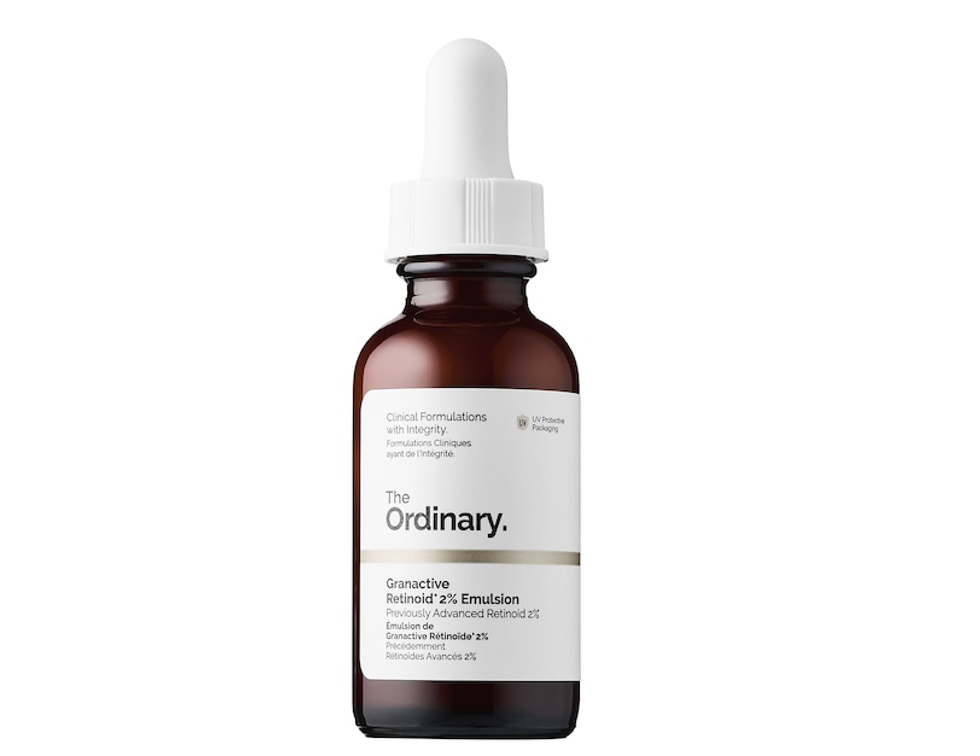
A high quality retinoid like this one I swear by from The Ordinary has been key for my nighttime skincare routine when I feel a breakout coming on, because it increases cell turnover.
Though this really worked for me after only a week or so of using it, Gersh does warn that PCOS patients should practice patience and try a lot of different products. "It is often necessary for hormonal acne to be treated with a variety of agents and to vary them over time."
Use a topical antibiotic with benzoyl peroxide in it.
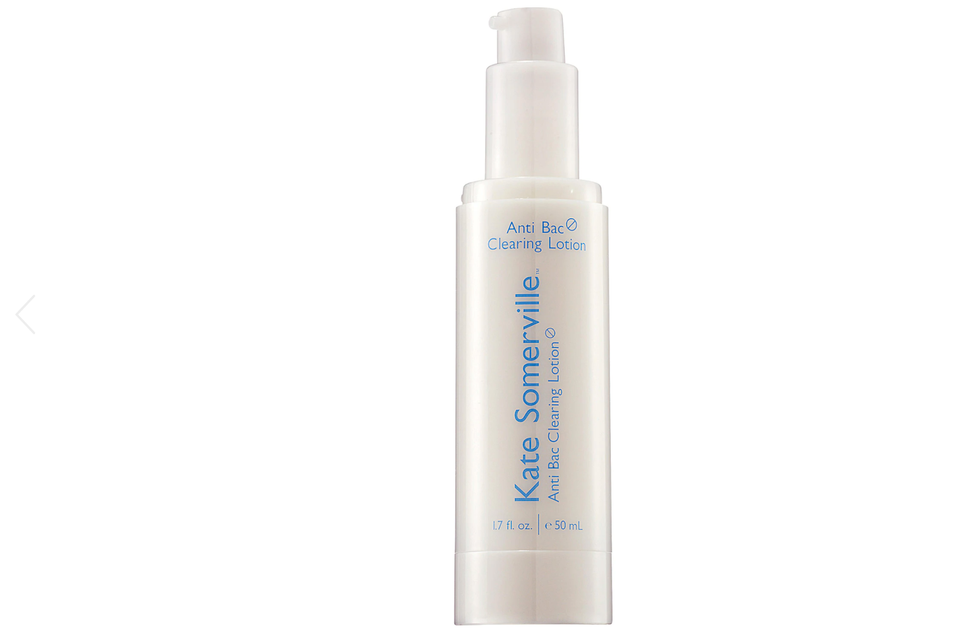
I have sensitive skin, so I am weary of products marketed as being anti-acne because they tend to be extremely over-drying. This one, however, has nourishing ingredients like argan extract in it. It also has advanced liposomes in it, too, which are specifically made to protect from acne-causing environmental aggressors that can dry out the skin.
Gersh explicitly names benzoyl peroxide as one of the topical antibiotics worth trying for its anti-inflammatory benefits.
Experiment with acid exfoliants.
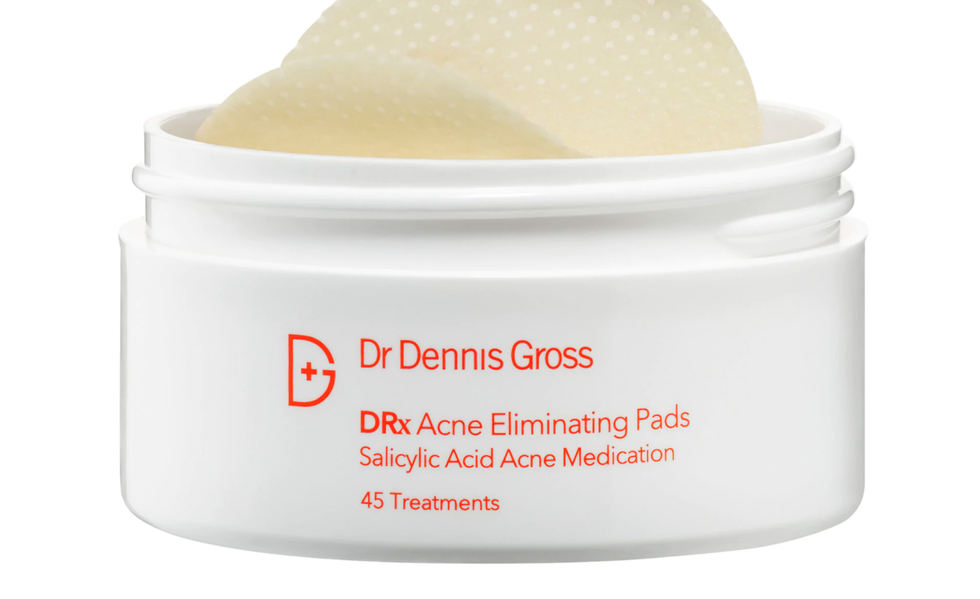
Acid exfoliants have been the biggest savior for me in healing both acne and acne scars. I use these pads a couple of times a week right out of the shower when my pores are still open from the hot steam. Even if I haven't worn makeup in days, this picks up dirt from deep within my pores that a cleanser just can't reach. For that reason, it's been a holy grail product of mine for years.
Gersh recommends acid exfoliants, specifically citing salicylic acid and azalaic acid as some of the most beneficial anti-acne ingredients.
Apply tea tree and lavender essential oils to acne.
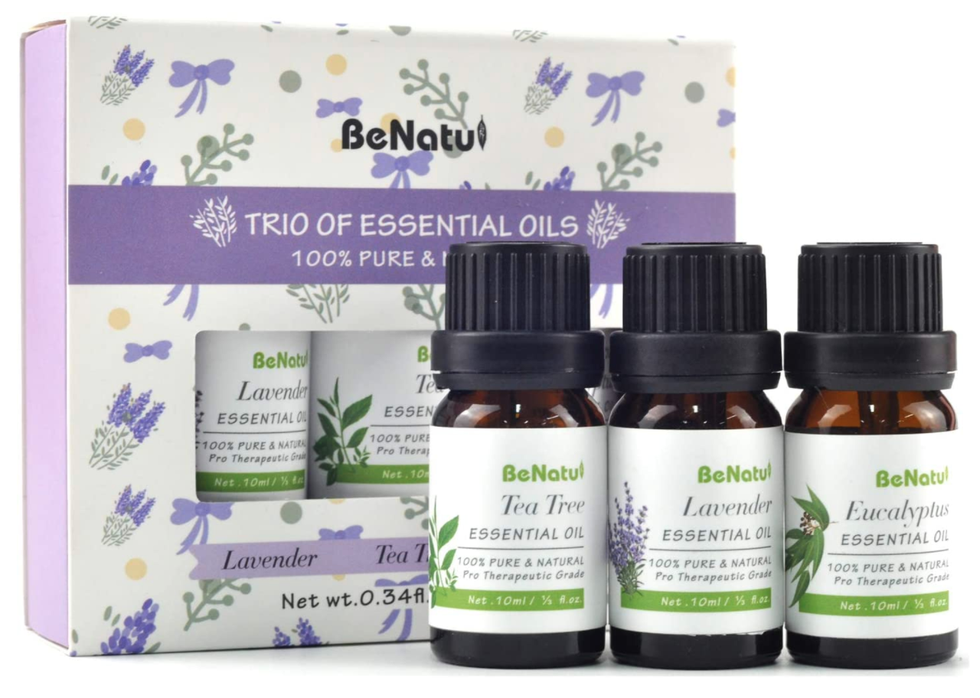
"Some natural products are helpful for many. Powerful essential oils like tea tree oil and lavender oil can kill pathogenic bacteria and can even be dabbed on a superficial pimple," says Gersh.
Personally, if I am experiencing a bad breakout, I'll put this in my diffuser at night before going to bed. My skin (and air) feels noticeable clearer in the morning. I'll use lavender essential oil in my diffuser at night if I feel like my skin is generally irritated and that a breakup is coming on — it soothes my skin and lessens any breakouts I feel coming on.
Purchase an LED light mask with red and blue light options.
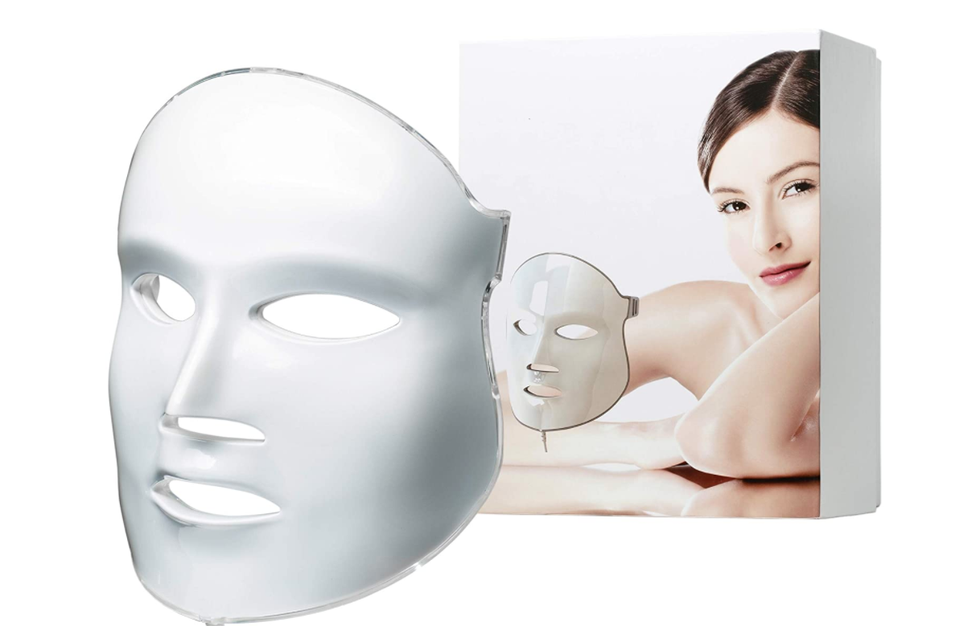
I'll be honest, I've never tried this one before, but I have friends who swear by it for their acne. "LED light treatments can help heal acne. Blue light helps superficial acne and red light tackles the deep cysts," says Gersh.
Use an aggressive peel every once in a while.
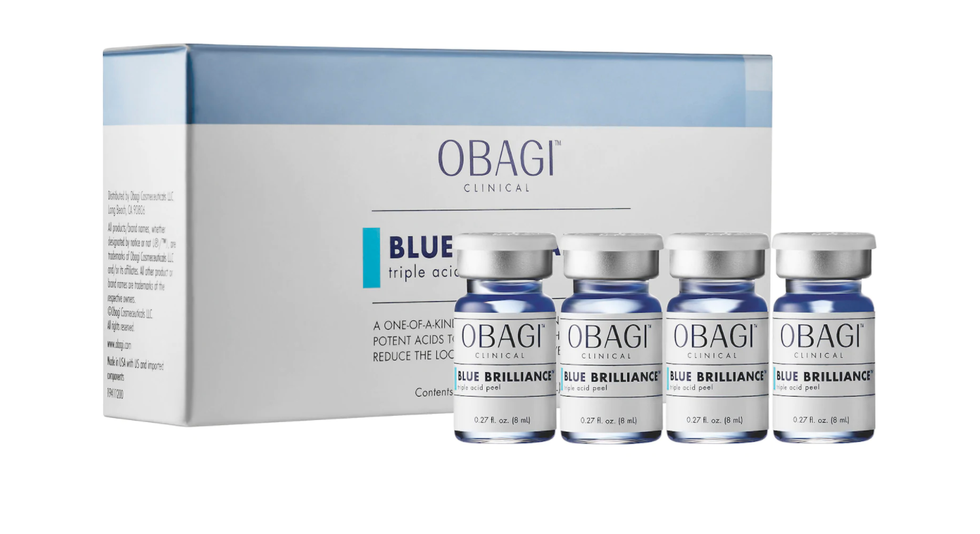
Gersh recommends peel like this one — for me, this Obagi peel product is by far the most aggressive at-home skincare product I have ever used. This will undoubtedly tingle when you use it, but that just means you can actually feel how effectively it is working on your skin.
I'm usually against using really aggressive products on my skin, but the results of this have been far more quick and effective than any expensive spa facial or dermatologist treatment I've ever received. My skin is noticeably clearer and brighter after I use it, and with continued use, the results are even better.
Avoid dairy.

"Absolutely avoid all dairy foods! That is rule number one,". Personally, I haven't eaten dairy in years, and this was what made the most significant difference in my skin and the amount of cystic acne I was getting.
Stick to an organic, vegetable-heavy diet.
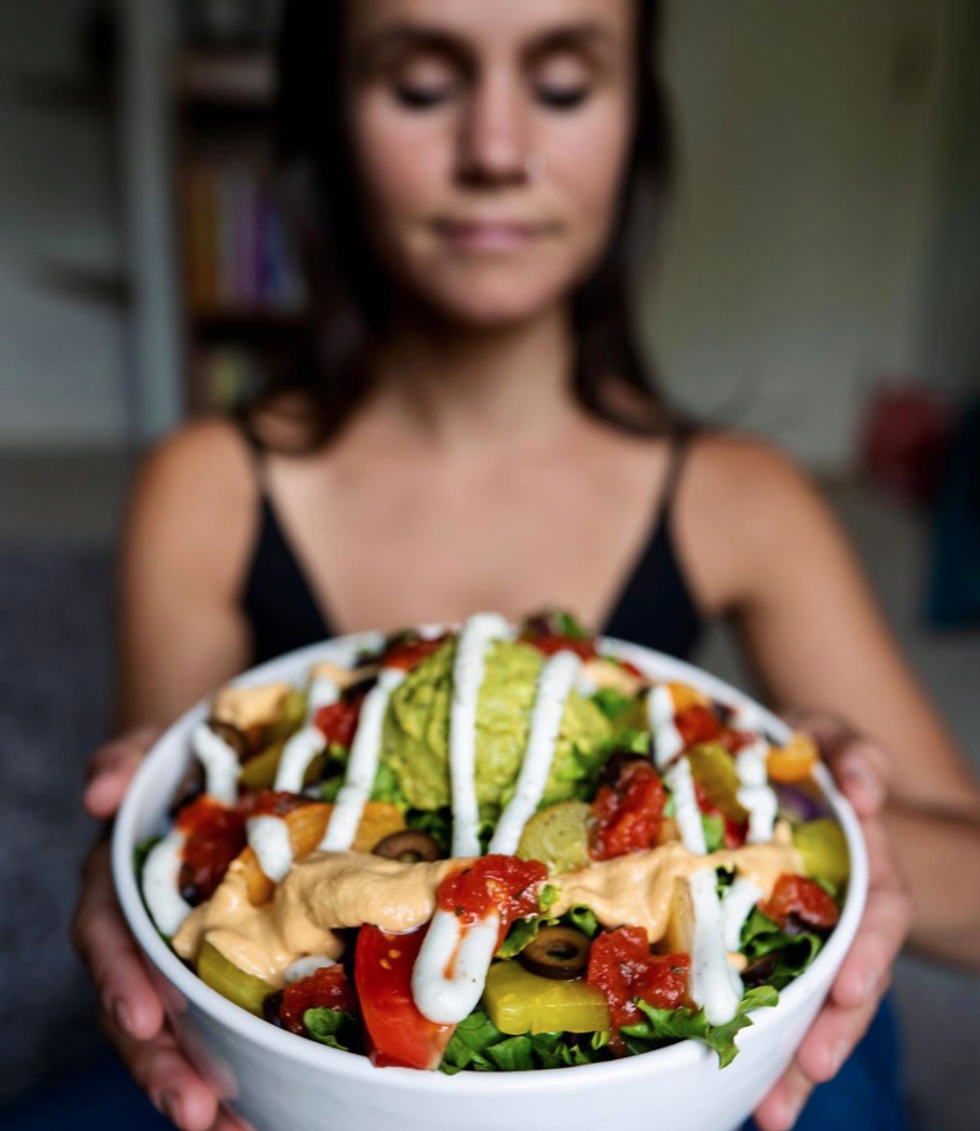
"Stick with organic foods and emphasize whole vegetables, raw nuts and seeds, and whole grains," says Gersh. She also recommends eating plant-based. If you do want to eat non-vegan foods, she advises keeping it to a maximum of 3 ounces a day.
Take A, Zinc, C, and D Vitamins.
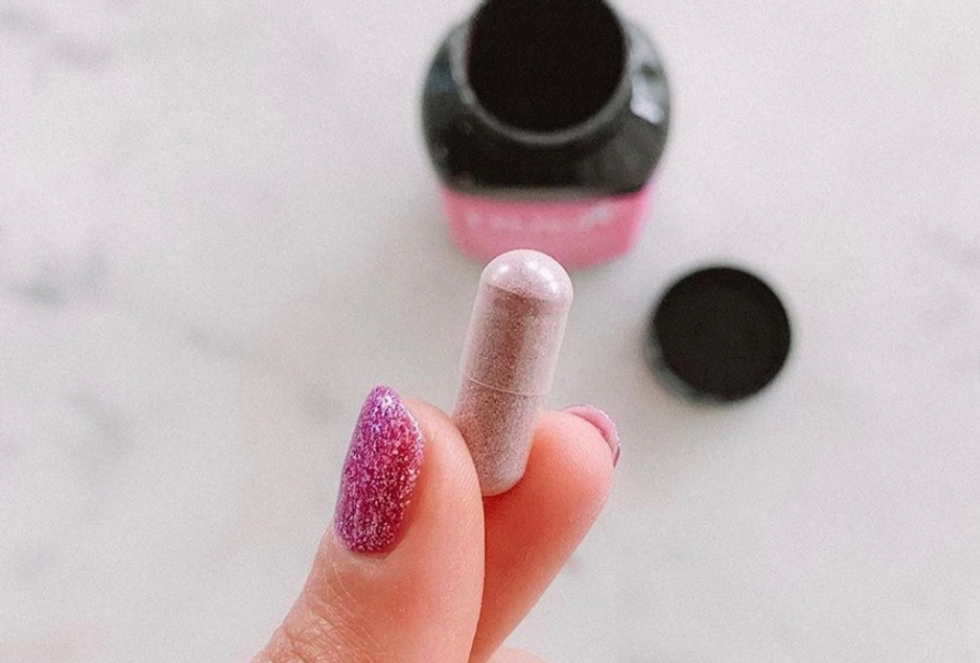
Anyone who spends a morning with me makes fun of the amount of vitamins I take in the morning. I take a plethora of vitamins every single day, and feel a noticeable difference in my skin (and energy levels) when I run out of one of them.
"It's essential to include vitamins A, zinc, C, and D," says Gersh. "These supplements help seal the gut, are antioxidants, help with glucose regulation, and improve sleep — the time we heal."
Stop snacking.

This is one piece advice I have the hardest time with. I live for my snack pantry, and in fact take a lot of pride in it. But, I do notice that the days I don't snack, I sleep better and my skin looks noticeably better. I know this works for making my skin look better, so it's something I am consciously working on.
"Eat a giant breakfast and small, late lunch and then stop eating as early as possible," says Gersh. "No snacks!"
Odyssey may earn a portion of purchases made via links on this page.





















